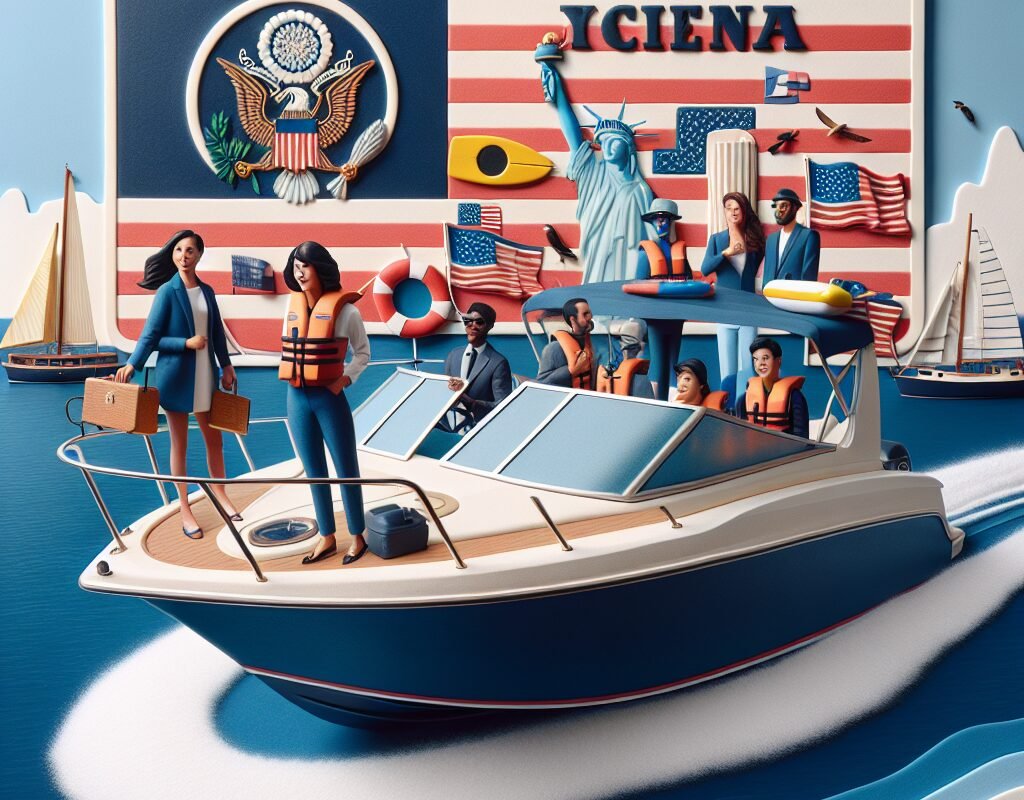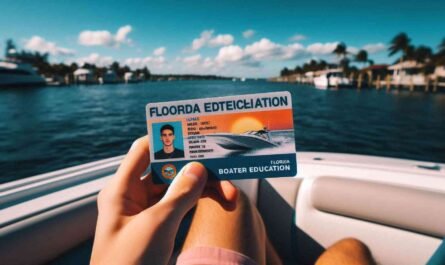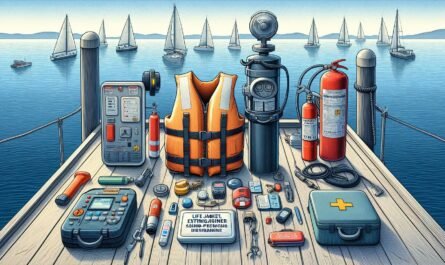Do You Need a Boating License to Drive a Boat in the USA?
There’s nothing quite like being out on the open water—whether you’re enjoying a peaceful cruise, going fishing, or just soaking up the sun. But before you grab the keys to a boat, it’s important to ask yourself: do you need a boating license to drive a boat in the USA?
Boating is a fun and exciting activity, but it also comes with responsibility. Knowing the rules and staying safe is a big part of making your day on the water enjoyable. In this article, we’ll explain whether you need a boating license, how to get one, and how to be polite and careful—like when figuring out how you should pass a fishing boat. Let’s dive in!
Do You Need a Boating License to Drive a Boat in the USA?
The quick answer? It depends on where you are and what kind of boat you’re using.
In the U.S., boating laws and licensing rules are different from state to state. Unlike a driver’s license, which is the same all across the country, boating rules change based on location.
You usually don’t need a “boating license” the same way you need a driver’s license. Instead, many states require you to take a safety course and carry proof you passed it. This proof is often called a boater education card.
State-by-State Rules
- In states like Florida or California, if you were born after a certain year, you must take a boat safety course.
- Some states, like Alaska and South Dakota, don’t require any official license or course to operate a boat.
- Other states only need you to pass a course if you’re driving certain boats, like fast Jet Skis or bigger motorboats.
Because every state is different, it’s important to check the rules for where you plan to go boating.
How to Get a Boating License: A Step-by-Step Guide
Worried about how to get started? Don’t be. Getting certified to drive a boat is easier than you think!
Here’s a simple step-by-step guide you can follow if your state requires it (or if you just want to be a smart, safe boater):
1. Find Out Your State’s Rules
Look up your state’s boating laws online. Most states have a Department of Natural Resources (DNR) or a boating agency website. This site will tell you:
- What kind of course you need
- How old you must be to drive a boat
- Where to take a class
- What kind of boats the law applies to
Websites like Boat-Ed, BoaterExam, or the U.S. Coast Guard’s Boating Safety Division can also help.
2. Sign Up for a Boating Safety Course
Once you know what your state requires, you can take an approved boating class. Good news—many of these classes are online!
These courses usually teach you about:
- Boating laws
- Safety rules
- What gear you need on your boat
- How to travel safely and politely
- How to react in an emergency
They usually cost between $30 and $50 and will take a few hours to finish. Most let you go at your own pace.
3. Pass the Test
At the end of the course, you’ll take a short quiz. Most of it is multiple choice, and if you paid attention, it shouldn’t be hard.
Some classes let you take the test again if you don’t pass the first time.
4. Get Your Boater Education Card
Once you pass, you’ll get a card or certificate. Some courses email it to you, while others send a paper copy by mail.
Keep it with you on the boat—it proves you know how to boat safely and legally in your state.
5. No Need to Renew (Usually)
In many states, this card is good for life! Though it’s smart to check for changes in boating laws every now and then.
The Benefits of Getting a Boating License
Even if you live in a state that doesn’t require a boating license or safety card, taking a safety course is still a great idea.
Here’s why:
- You’ll be safer on the water
- Fewer chances of accidents or fines
- You could get a discount on boat insurance
- You’ll feel more confident piloting a boat
- You’ll be a better and more respectful boater
Educated boaters help keep America’s lakes and rivers fun and safe for everyone.
How Should You Pass a Fishing Boat? Boating Etiquette 101
You’re out on the water and come across a fishing boat—what do you do?
Knowing how you should pass a fishing boat is part of being a polite and safe boater.
Know the Water “Rules of the Road”
Just like roads for cars, the water has traffic rules, too:
- When passing another boat, you can go on either side—left (port) or right (starboard)—as long as it’s safe.
- When in doubt, slow down and give the other boat plenty of space.
- Pay attention to no-wake zones (areas where you’re supposed to go very slowly).
Especially around fishing boats, speeding can mess up people’s lines, scare away fish, or even tip over smaller boats with big waves.
Tips for Passing a Fishing Boat the Right Way
- Slow way down—it’s safer and quieter.
- Keep a wide distance (100 feet or more is best).
- Give a little wave to say hello and show you’re being careful.
- Never go between the boat and the shore or any float markers—fishing lines are often in that space.
Good manners on the water make boating better for everyone.
FAQs About Boating Licenses
Here are some quick answers to common questions people ask about boating licenses:
🛥️ Do I Need a License to Drive a Boat?
Maybe! It depends on your state’s laws. Some states require a boating license or safety card. Others don’t.
👧🏽 Do Kids Need a License?
In many states, kids or teens must take a course or have adult supervision. Check your local rules.
🚗 Is a Boating License the Same as a Driver’s License?
Nope! A boating safety course certificate is totally separate from your car driver’s license.
✈️ Will My License Work in Another State?
Most of the time, yes. If your card is from a NASBLA-approved course, many states will accept it. Still, check local rules before boating somewhere new.
Ready to Set Sail the Right Way?
So—do you need a boating license to drive a boat in the USA? The answer depends on your state, your age, and the kind of boat you want to drive. But whether it’s required or not, learning how to boat safely is the smart thing to do.
Getting certified is easy, affordable, and helps you become a better, more respectful boater. Plus, knowing important tips like how you should pass a fishing boat can make your time on the water safer and more fun for everyone.
⛵ Let’s get started! Check your state’s rules, sign up for a safety course, and earn your certification today. Your next boating adventure is just around the corner!
📚 Want more boating tips, safety ideas, and gear reviews? Subscribe to our newsletter and you’ll always be in the know—because great boating begins with great info.







